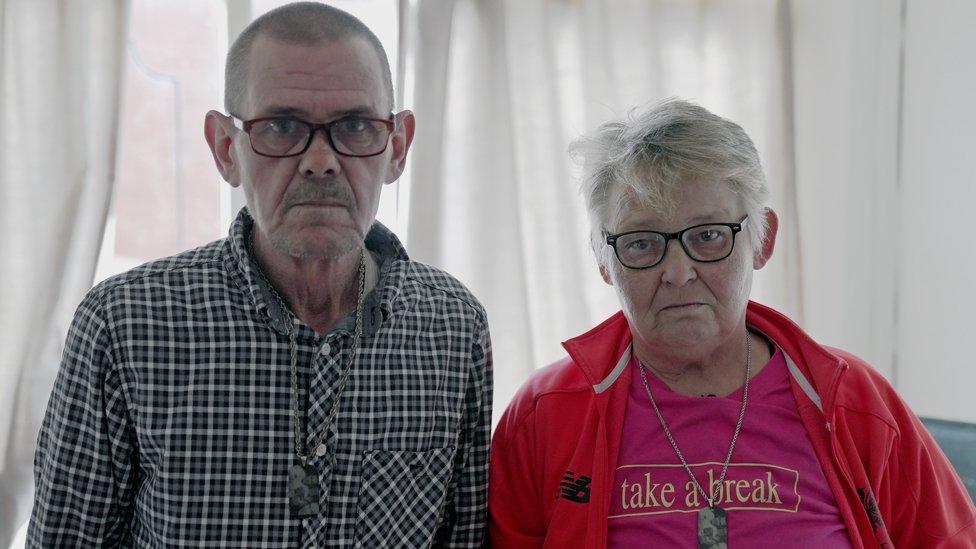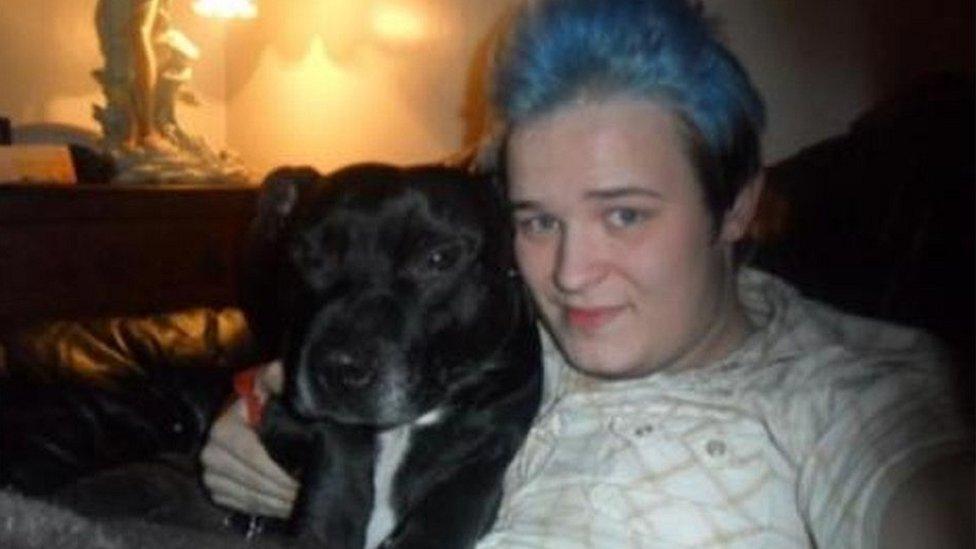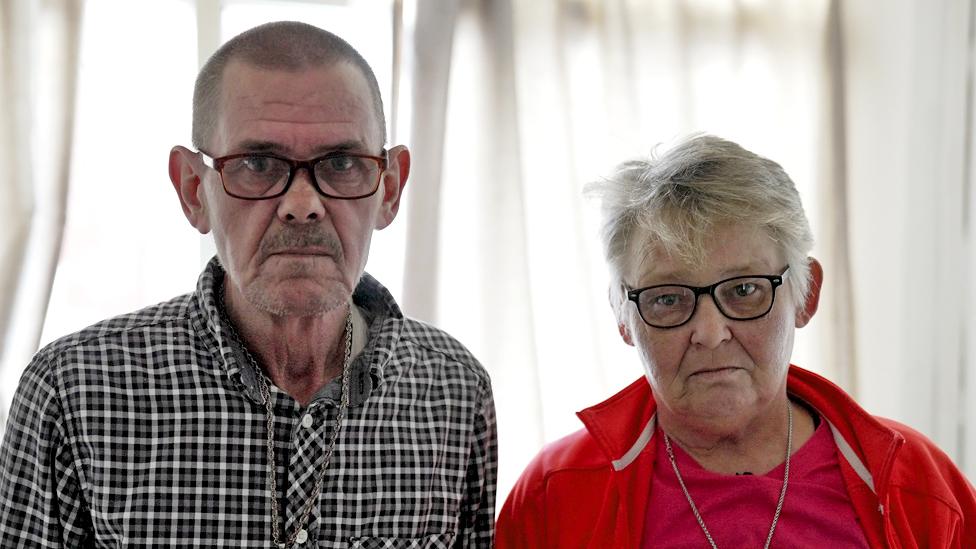Luke Brooks: Inspectors found mould before man's death, inquest hears
- Published

Luke Brooks, 27, died in October 2022
Council inspectors found damp, mould and leaks at the home of a man who later died but these complaints were not followed up, an inquest has heard.
Luke Brooks' parents have previously claimed mould in their Oldham home caused his death in October 2022.
Joanne Collier, from the environmental health team at Oldham Council, told Rochdale Coroner's Court there were "missed opportunities".
The inquest heard various defects were found over a four-year period.
Ms Collier said three inspections had taken place at the property in 2018 and 2021, and additional referrals were received from the family and a local charity complaining about the condition of the house.
At each inspection, mould, damp and leaks as well as other electrical faults and missing plaster were found.
Asked by senior coroner Joanne Kearsley if there was "significant" mould in the house, Ms Collier replied: "No."
"There was mould growing in the bathroom ceiling which needed attending to but it was not significant in that it was not in the living room, not in the bedroom," she said.
"It wasn't in those lifestyle areas you're constantly going in."
Ms Collier said on each occasion she would have "expected a further follow-up" to be made with both the family and the landlord.
She told the inquest the family's privately-rented property was in an area of Oldham under a selective licensing agreement.
This meant that the council had additional powers to audit and monitor privately-rented properties.

Mr and Mrs Brooks have previously said they "begged" their landlord to make repairs
However, she said the issues noted at the house were not considered to be "of major concern" and the landlord had told inspectors that repairs were under way.
When asked by the family's counsel if her team had been informed that six weeks before Mr Brooks' death his mother Patsy had attended Oldham Council buildings and "begged" for help, Ms Collier replied no.
Jane Radcliffe, head of adult social care at Oldham Council, told the inquest that she undertook a review for the council after Mr Brooks' death.
Before this, social services had no prior involvement with the family, she said.
Ms Radcliffe agreed with Ms Collier that there had been "missed opportunities" particularly related to "communication" and "joint-working" with multiple council departments and agencies.
Det Insp Andy Fink, from Greater Manchester Police, said he visited the property after Mr Brooks' death in November 2022.
He said this was standard procedure as there had been concerns raised about the state of the property and a possible drug-dependency for Mr Brooks.
He told the inquest that "all rooms except one were untidy" but he did not observe mould except in small areas.
He said he had been shown around the home by Mr Brooks' sister, Sarah, who explained she had cleaned many of the walls and windows.
Det Insp Fink said parts of Mr Brooks' room were "dirty", adding "unclean bedding and mattresses" and plates and cutlery had "been there for some time".
He concluded there was no criminality linked to Mr Brooks' death.

Luke Brooks died six days after developing a cough, rash and sore throat, the inquest heard
A pathologist previously told the inquest it was unlikely the mould that contributed to Mr Brooks' death - aspergillus - was the same as that growing on the walls in his house, which was mostly penicillium.
Fungus expert Professor Malcolm Richardson said he found "very, very little" evidence of aspergillus in the house with just one spore found in the bedroom where Mr Brooks died.
A statement read to the inquest from Dr Chris Kosmidis said aspergillus was inhaled daily and the immune system of a healthy person could rapidly eliminate aspergillus particles, but it could affect people with weakened immune systems - such as people with cancer or HIV - or people who have had influenza or Covid-19.
Dr Kosmidis said Mr Brooks had reported symptoms which "could be suggestive of a viral infection", which could have made him more susceptible to aspergillus.
He had a negative Covid-19 test, the inquest heard.
The expert said he could not find cases of aspergillus pneumonia linked to a mouldy room.
He said there were links with cannabis, which Mr Brooks was known to smoke, and there had been a number of cases of aspergillosis among cannabis smokers, but the links "cannot be proven".
The hearing continues.

Why not follow BBC North West on Facebook, external, Twitter, external and Instagram, external? You can also send story ideas to northwest.newsonline@bbc.co.uk, external
- Published8 August 2023

- Published7 August 2023

- Published7 August 2023

- Published21 July 2023

- Published28 March 2023

- Published22 November 2022

- Published15 November 2022
